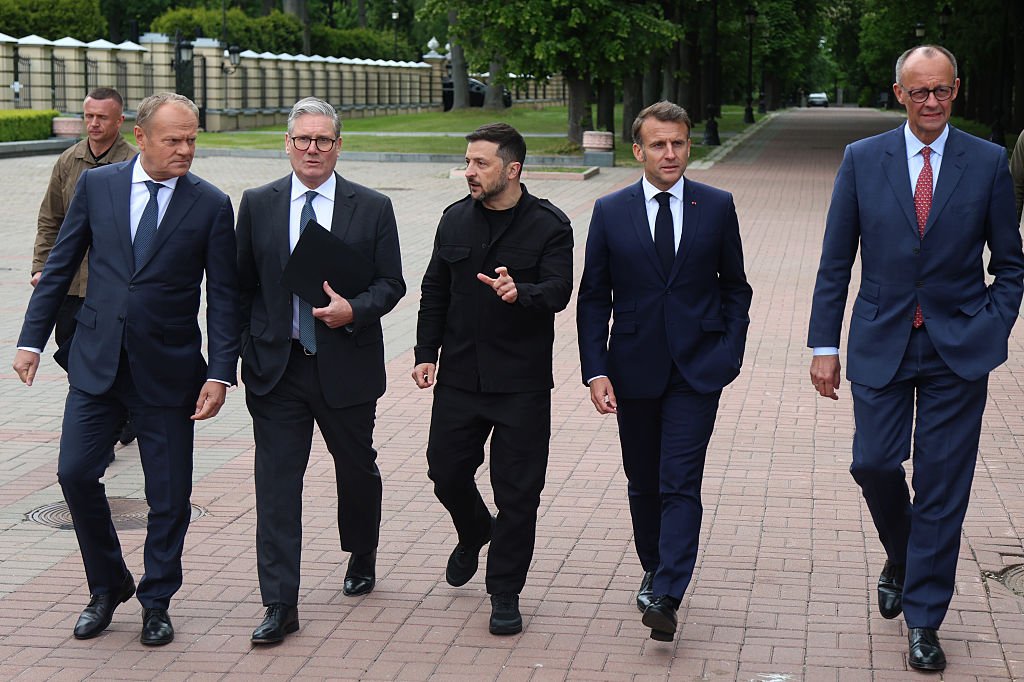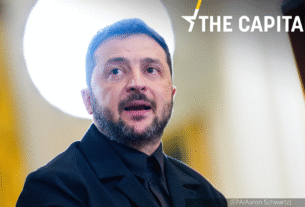Chris Kremidas-Courtney is a senior visiting fellow at the European Policy Centre, associate fellow at the Geneva Centre for Security Policy, and author of ‘The Rest of Your Life: Five Stories of Your Future.’
In 1973, a French physician writing under the pseudonym Voltaire Cousteau offered a tongue-in-cheek essay, How to Swim with Sharks: A Primer. It was intended as after-dinner entertainment for sponge divers and surgeons, but his satirical “rules” for survival in shark-infested waters have since been read far more broadly. Half a century later, they offer an uncanny guide for navigating negotiations with Vladimir Putin.
Cousteau’s first rule was blunt: Assume all unidentified fish are sharks. Not every creature in the sea looks threatening at first glance, but appearances deceive. The same is true in geopolitics. Putin has long disguised aggression with ambiguity, from “little green men” in Crimea to hybrid campaigns in cyberspace and Africa. To engage with him as though he were just another head of state, rather than a predator of opportunity, is to forget the water we are swimming in.
Another Cousteau rule is Do not bleed. In the shark metaphor, this meant controlling panic, because the scent of blood invites attack. In today’s Europe, bleeding looks like division. Every time allies fracture over sanctions, defence spending, or energy policy, they release blood into the water. Solidarity with Ukraine, which has taken the deepest wounds, helps to keep the predator at bay. The stronger our unity, the less Putin can exploit his favourite weapon: the perception that democracies cannot hold together under stress.
Cousteau also advised to Counter aggression promptly. Sharks often test their prey before striking. So does Putin, with probing escalations in Ukraine, Moldova, or the Baltic states. Hesitation is read as weakness. That is why immediate, coordinated responses such as military support for Ukraine, collective sanctions, and major NATO exercises are not provocations but deterrents. They tell the predator: We see your test, and we won’t wait for a full attack before we respond.
One of Cousteau’s darker lessons was to Get out of the water if someone is bleeding. Taken literally, this may suggest abandoning an injured ally. But in a community of democracies, the meaning flips. When Ukraine is under attack, we cannot leave the water. Solidarity demands we move closer, not farther away. NATO’s Article 5 and the EU’s mutual defence clause exist to prevent isolation; their spirit should now extend to Ukraine, even if Kyiv is not yet under their umbrella. Supporting Ukraine’s survival is about more than principle – it’s about ensuring the sharks do not grow bolder from the taste of blood.
Cousteau also emphasised anticipatory retaliation. Skilled swimmers remind sharks of their strength periodically, so the predator doesn’t forget. In practice, this means steady demonstrations of resolve: NATO exercises, arms deliveries to Ukraine, economic pressure on Russia. The aim is not reckless escalation but consistent reinforcement of deterrence. Putin must be kept in doubt about his ability to divide or outlast us.
Finally, Cousteau observed that sharks sometimes attempt organised attacks. Putin’s version is political: exploiting dissent among democracies, weaponising energy and migration, financing extremist parties, and using disinformation to turn allies against one another. Cousteau’s counterstrategy was diversion to cause sharks to turn their fury inward. Our version is unity itself: depriving Putin of division and instead showing him a Europe and transatlantic community that moves as one.
The essence of Cousteau’s satirical guide is survival in hostile waters. But survival, for us, is not a solitary act. To swim with sharks and stand with Ukraine is to embrace discipline, composure, and solidarity.
Voltaire Cousteau’s rules may have been written as parody in 1973, but their relevance today is deadly serious. The waters of geopolitics are infested. Our task is not just to swim among sharks, but to ensure that Ukraine, and all of us together, emerge intact.





